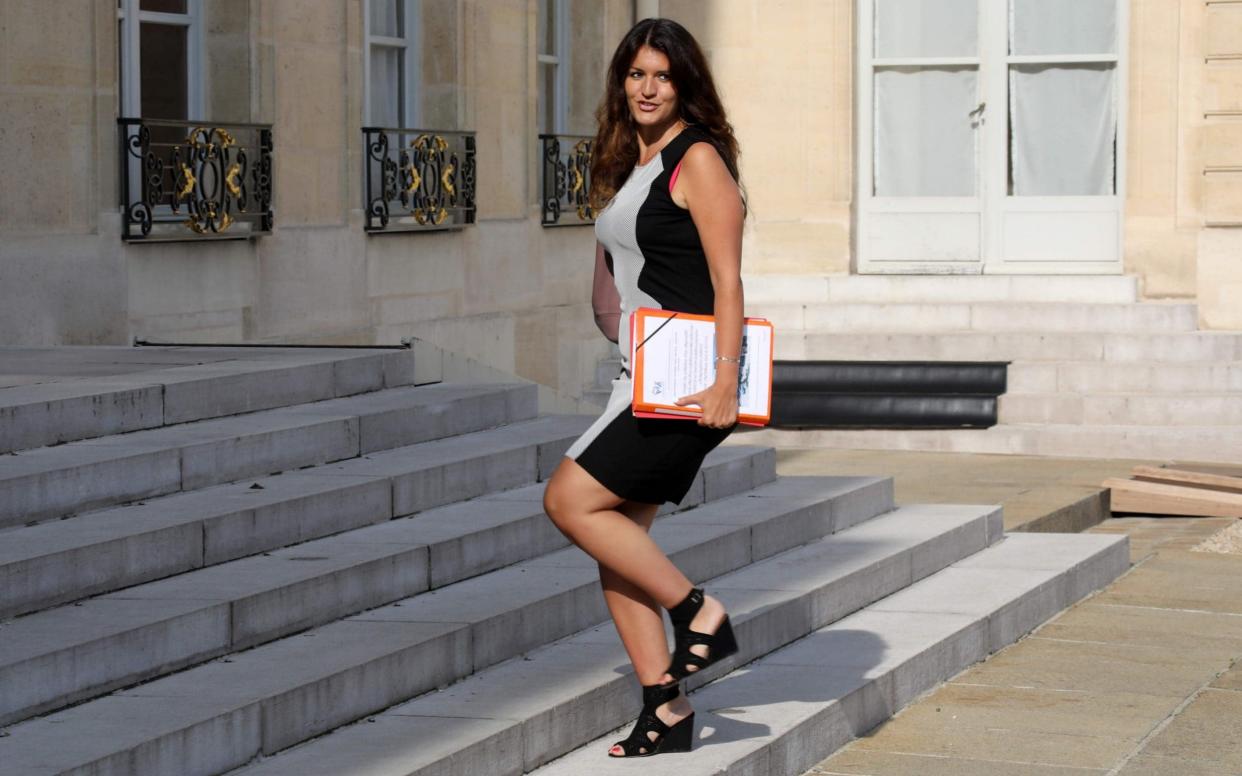French men to face fines for wolf-whistling or lecherous behaviour under law out next year

Men who wolf whistle or are aggressively lecherous to women on French streets face fines under a new law against sexism and sexual abuse to be passed next year, the government has confirmed.
Gender equality minister Marlene Schiappa, 34, a feminist and writer, said workshops would be held across France to discuss the bill, as tens of thousands of French women took to Twitter to share experiences of harassment in the workplace.
French president Emmanuel Macron on Sunday said he wants to tackle sexist male attitudes in public spaces and will send new contingents of community police to enforce the new law.
"It's completely necessary because at the moment street harassment is not defined in the law," Ms Schiappa told RTL radio.

Her comments came amid heated debate in France over what constitutes harassment, prompted by Hollywood producer Harvey Weinstein's alleged sexual assaults on a string of actresses.
French women flooded Twitter at the weekend to recount their experiences of being sexually harassed at work.
Some 86,000 posted comments under the hashtag #balancetonporc or "squeal on your pig”, launched by Sandra Muller, a French journalist, who recounted how her former boss had commented on her breasts and promised to have sex with her “all night long”.
#balancetonporc !! toi aussi raconte en donnant le nom et les détails un harcèlent sexuel que tu as connu dans ton boulot. Je vous attends
— Sandra Muller (@LettreAudio) October 13, 2017
The hashtag quickly became the number one trending hashtag in France and third worldwide.
Police unions and some lawyers criticised the law as well-nigh impossible to enforce as culprits would have to be caught in the act and the line between harassment and flirtation hard to draw.
But Ms Schiappa said: "We know very well at what point we start feeling intimidated, unsafe or harassed in the street."
She cited examples such as when a man invades a woman's personal space - "by talking to you 10, 20 centimetres from your face" - or follows a woman for several blocks, or "asks for your number 17 times".
A cross-party taskforce composed of five MPs has been asked to work with police and magistrates to come up with a definition of harassment that can be enforced by officers on the streets.
The size of the fines was still "up for discussion", said Ms Schiappa, but that it should not be too high so offenders could pay immediately when caught in the act.
The minister said she wanted the statute of limitations in cases of alleged rapes against minors to be extended to 30 years, from the current 20 years after the victim has turned 18.
The proposal was partially derived from recommendations by a working group overseen by TV host Flavie Flament, who last year accused the late British photographer David Hamilton of raping her when she was 13. Ms Flament could not file a lawsuit because the statute of limitations had expired in her case. Mr Hamilton denied the claims and committed suicide in the wake of the revelations.
The draft law also aims to alter rules on consensual sex. introducing an age under which a minor cannot consent to a sexual relationship, allowing prosecutors to charge offenders with rape even when violence has not been proved. Under current French case law, only children under five are automatically regarded as non-consenting.
Last month, there was outrage in France after prosecutors decided to charge a 28-year-old man who had sexual intercourse with an 11-year-old girl with sexual abuse of a minor, instead of rape, because she had followed him without being threatened physically.
"The important thing is that there is no debate about consent when it comes to children," Ms Schiappa said. "So no one can say it is their fault. Because it is never their fault."
Asked about the Harvey Weinstein scandal and the avalanche of Twitter messages posted by French women who recalled their experience of being harassed at work, Ms Schiappa said she was impressed by the huge number of testimonies.
"It's not women who don't speak, but society which does not listen to them," she said.
Mr Macron on Sunday said that he wants to revoke Mr Weinstein's Legion of Honor award after the wave of accusations of sexual abuse against the Hollywood mogul. The French president said has "started the procedures" for such a removal.
Mr Weinstein was handed the award in 2012 by then-President Nicolas Sarkozy after the French film The Artist that he produced won multiple Oscars.

 Yahoo News
Yahoo News 
